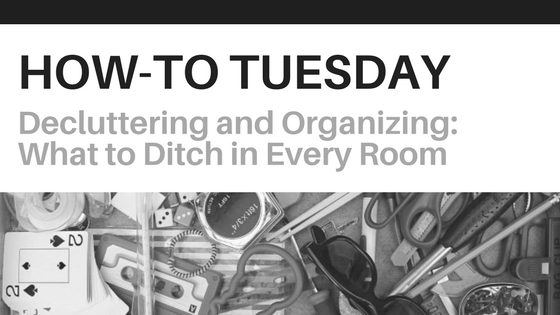How-To Tuesday: Hold a Successful Yard Sale

Yard sale. Garage sale. Tag sale. Rummage sale. Whatever you call it, it’s the season for getting rid of clutter and making a little extra cash in the process. If you want to hold a good, successful sale that runs smoothly, it can’t just be thrown together at the last minute. It takes patience, planning, and a little bit of hard work to get everything ready. Try these tips for holding a truly successful yard sale.
Plan ahead.
You can’t just decide on a Friday evening that you want to have a garage sale on Saturday morning. It takes planning to pull everything together, get the word out, and set yourself up for success. Choose a date that will allow you plenty of time to gather all of the items you want to sell, price them, run ads on local websites and/or newspapers, go to the bank so you’ll have enough change for buyers, etc. We recommend starting the process at least a week ahead of time.
Decide on a date and time.
Saturday is by far the most popular day to hold a yard sale. If you really want to maximize your time spent, try doing a multi-day sale, preferably on Friday and Saturday mornings or Saturday and Sunday mornings. Most yard sale shoppers start early, so the earlier you set up, the better. 7am until noon is a good, solid time frame for most yard sales. That way you catch both the early birds and the late risers. Be sure to check the weather beforehand!
Check permit requirements.
In Charleston, permits are NOT required for garage sales, as long as you don’t have more than one per quarter. This is a standard set forth by the state. Check official city websites for information on other areas.
Gather the goods.
Grab that “giveaway” box you put together during spring cleaning and get it ready! People will buy a wide variety of things at yard sales, from DVDs and CDs to random electronic chargers and baby clothes. Some of the items that attract a lot of buyers are baby gear, kids’ toys, name brand clothing and accessories, video game consoles and/or games, and power tools.
Get the word out.
Back in the “olden days,” our choices for advertising yard sales were basically just newspaper ads and handwritten signs. Now we have lots more platforms available, like Craigslist, neighborhood websites, and social media sites. Mom Swap and For Sale pages on Facebook are particularly good places to post info for your yard sale. Be sure to include the date(s), times, address, and examples of items for sale. Put out signs a day or two before the sale. Make sure they’re easy to read and maybe add a balloon for attention.
Price your inventory.
To make things simple, get some removable stickers from anywhere office supplies and stationery are sold. Set your prices at nice, round numbers like 50 cents, 3 for $1, $10, etc. Yard sale shoppers will almost always try to negotiate a lower price, so keep that in mind.
Gather supplies.
Remember to get a lot of one dollar bills and quarters so you can make change for shoppers. You’ll need a calculator at hand for large purchases. Grab some old newspaper for wrapping fragile items, and break out old shopping bags for customer convenience. It’s also a good idea to make a list (rough or detailed) of what you have for sale so you can keep a tally of what you’ve sold throughout the day.
Get organized.
Sort items out by category, and place like items together. Don’t make shoppers dig through a box of assorted clothes in all sizes just to find baby onesies. Organizing by category will also help you keep an eye on the big ticket items to make sure they don’t disappear.
Have fun!
Make it a family event. Enlist the kids’ help by setting up a lemonade or soda and snack stand with them. Play fun music to attract passersby and keep shoppers in high spirits. Maybe even have a coloring station to keeps kids entertained while their parents browse.
We hope these tips help you have your best yard sale yet. Now take that extra cash you made and treat your family to a movie or a nice dinner out. You’ve earned it!










